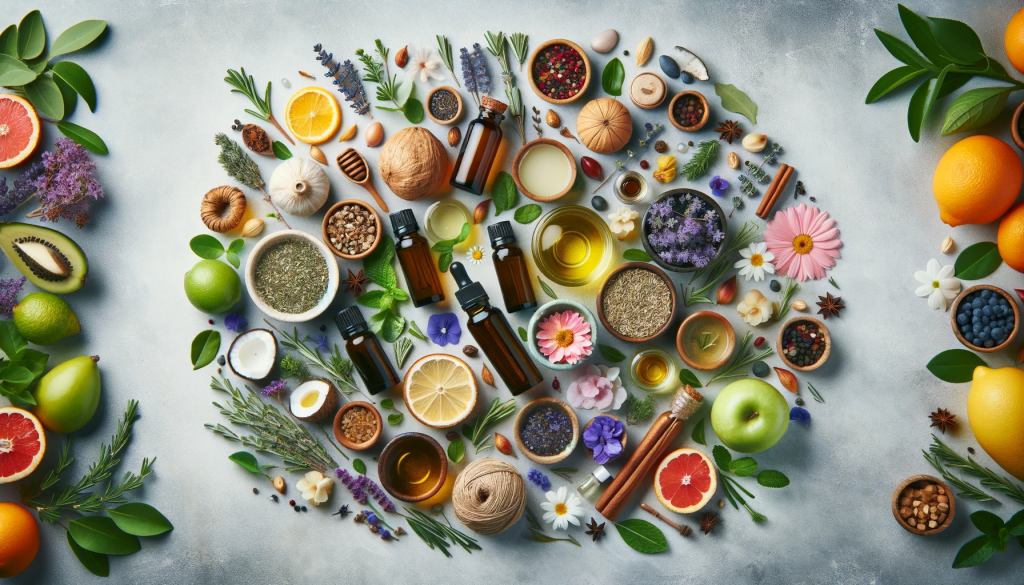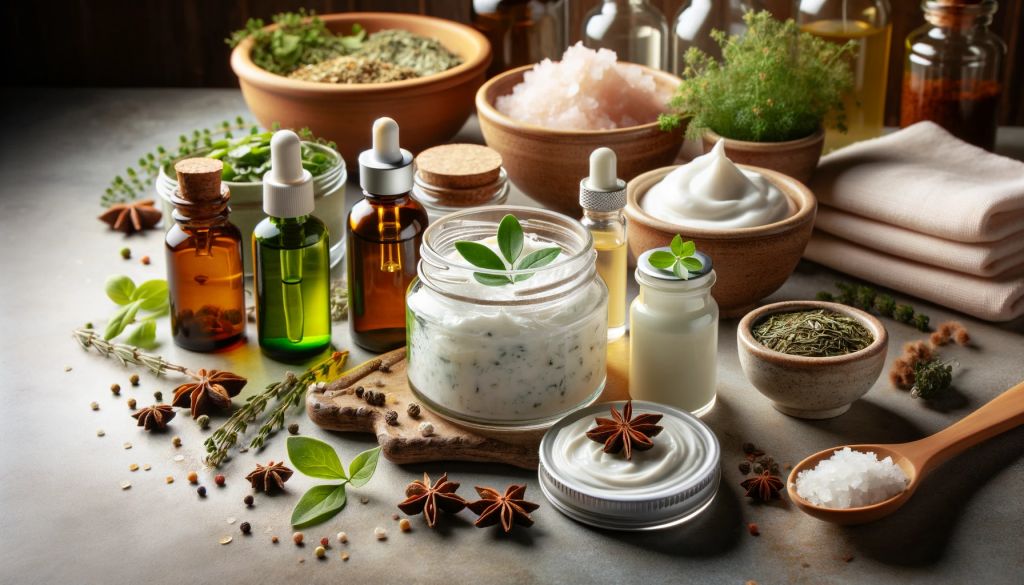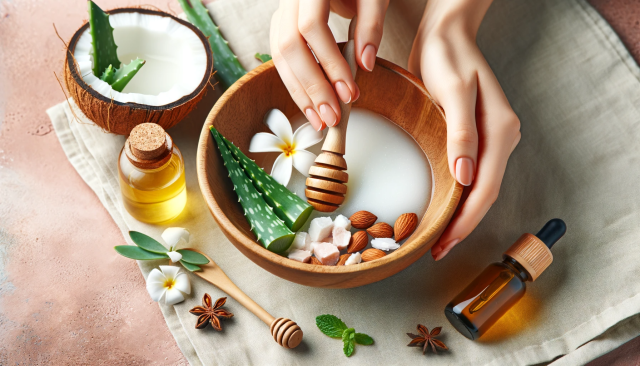Introduction
In a world where we’re increasingly conscious about what we put on our bodies, making your own skincare products has become more than just a trend – it’s a lifestyle. Natural skincare offers a way to pamper your skin with pure, chemical-free ingredients while also taking an environmentally friendly approach. This blog will guide you through the benefits of homemade skincare and provide easy recipes to get you started on your natural beauty journey.
Benefits of Natural Skincare
Homemade skincare has several advantages:
- Skin Health and Safety: By using natural ingredients, you minimize the risk of skin irritations and allergies often associated with synthetic substances found in commercial products.
- Environmental Impact: Natural skincare is not only good for your skin but also for the planet. It reduces your carbon footprint by avoiding products with harmful chemicals and excessive packaging.
- Cost-Effectiveness: Making your own skincare products can be more economical than purchasing high-end commercial products. Most recipes use readily available ingredients that are versatile and long-lasting.
Getting Started: Basic Ingredients and Tools

To create your own skincare products, you’ll need a few basic ingredients and tools:
- Natural Ingredients: Common ingredients include coconut oil, shea butter, aloe vera, honey, and essential oils. Each has unique benefits, such as moisturizing, anti-inflammatory, or antimicrobial properties.
- Tools and Equipment: You’ll need measuring spoons, a mixing bowl, a blender or food processor for some recipes, and containers for storage. A double boiler can be handy for melting ingredients.
Simple Skincare Recipes
Here are a few easy recipes to start your DIY skincare routine:
- Basic Face Cleanser:
- Mix 1 tablespoon of honey with 2 tablespoons of natural yogurt.
- Gently massage onto the face, then rinse with warm water.
- Honey is antibacterial, while yogurt soothes and moisturizes the skin.
- Nourishing Moisturizer:
- Melt ½ cup of coconut oil and mix with a few drops of your favorite essential oil.
- Apply to the skin after it cools.
- Coconut oil is a great natural moisturizer.
- Exfoliating Face Scrub:
- Combine 1 tablespoon of ground coffee with 1 tablespoon of coconut oil.
- Gently scrub your face and rinse.
- Coffee exfoliates and invigorates the skin.
Advanced Skincare Recipes
For those who are more experienced or adventurous:
- Anti-Aging Serum:
- Mix 1 tablespoon of argan oil with 2 drops each of lavender and rosehip essential oils.
- Apply a few drops to the face before bed.
- These oils are known for their rejuvenating properties.
- Soothing Face Mask:
- Blend 2 tablespoons of aloe vera gel with a slice of cucumber.
- Apply to the face for 15 minutes, then rinse.
- Aloe vera and cucumber are soothing and hydrating.
- Natural Toner:
- Steep green tea and allow it to cool.
- Mix with a teaspoon of apple cider vinegar.
- Apply with a cotton ball after cleansing.
- Green tea is antioxidant-rich, and apple cider vinegar helps balance skin pH.
Tips for Customizing Your Skincare
Personalizing skincare products to suit your skin type is key to maximizing their benefits:
- For Dry Skin: Focus on hydrating ingredients like shea butter, coconut oil, and hyaluronic acid. These ingredients help lock in moisture and soothe dry skin.
- For Oily Skin: Use light, non-comedogenic oils like jojoba or argan oil. Incorporate ingredients like witch hazel or tea tree oil for their astringent properties.
- For Sensitive Skin: Opt for gentle, soothing ingredients such as oatmeal, aloe vera, and chamomile. Avoid harsh exfoliants or high concentrations of essential oils.
- Adding Fragrance: Essential oils not only add fragrance but also bring therapeutic properties. Lavender is calming, tea tree is antibacterial, and rose oil is nourishing. Always use them in moderation and do a patch test first.

Storage and Safety
Proper storage and handling are essential for homemade skincare products:
- Storage: Store your products in clean, airtight containers. Glass jars or bottles are ideal as they don’t interact with the ingredients.
- Shelf Life: Natural products have a shorter shelf life than commercial ones. Use them within a few weeks to a couple of months, and keep an eye out for any changes in smell or texture.
- Hygiene: Always use clean hands or a spatula to scoop out products. This helps prevent contamination and prolongs their usability.
- Sunlight and Temperature: Store products in a cool, dry place away from direct sunlight, as heat and light can degrade certain ingredients.
Conclusion
Making your own skincare products is a rewarding and creative way to care for your skin. With natural, easy-to-find ingredients, you can create a range of products tailored to your specific needs. Not only is this approach beneficial for your skin and the environment, but it also allows you to experiment with different ingredients and textures. Embrace the world of DIY skincare and enjoy the journey of creating personalized, effective, and natural beauty treatments in the comfort of your own home.













































